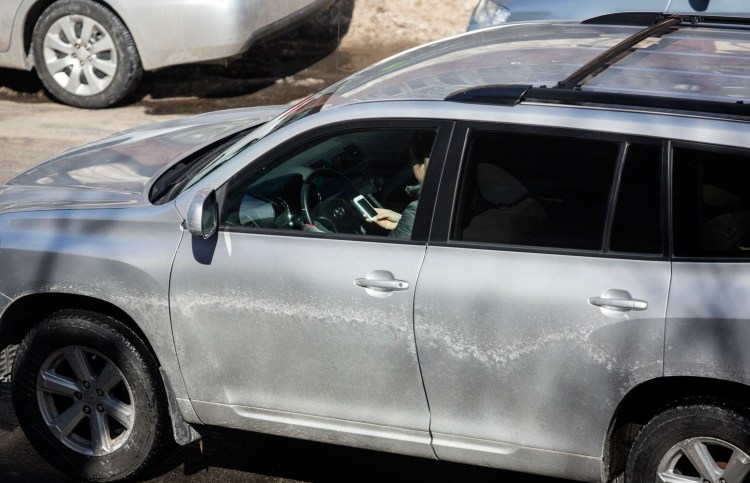The Legislature on Wednesday approved a bill to ban the use of cellphones and other handheld devices while driving.
Maine already bans texting while driving, but police say the law is hard to enforce. Lawmakers have tried to strengthen the state’s handheld device laws for years to cut down on distracted driving and the crashes it causes.
“I think we are going to see some tremendous changes in terms of the safety of our highways,” said Sen. Bill Diamond, D-Cumberland, the bill’s sponsor.
The measure prohibits talking, texting or using a handheld device while driving, even at a stoplight or in stopped traffic. It passed the House 117-23 on Tuesday and 22-12 in the Senate on Wednesday. Maine would join 19 other states and the District of Columbia in prohibiting such activity, according to the National Conference of State Legislatures.
There was no debate in either house, and Democratic Gov. Janet Mills has signaled that she plans to sign it, Diamond said.
“Texting and driving is a huge issue we need to address, which is why there was no opposition to this,” Diamond said.
More than 6 percent of drivers on Maine roads were talking on a phone or manipulating a device, according to a 2018 survey of almost 13,600 vehicles.
John Williams, executive director of the Bicycle Coalition of Maine, knows the problem all too well.
“I ride my bike a lot and it is frightening to have people come up from behind you and pass at a close distance, and you realize they are on their cellphone and not paying any attention,” Williams said.
The coalition supported the bill and Williams said he was surprised it has taken this long to get more protections passed.
“It is not a partisan issue, it is just a common sense thing to me,” Williams said. “If you are driving you should be paying attention to the road, not looking at your handheld device.”
A spokesman for Mills said the governor has not taken a position on the bill.
“She has 10 days to sign it, veto it, or allow it to become law without her signature,” said Scott Ogden, Mills’ communications director.
If the bill becomes law, it would take effect 90 days after the Legislature adjourns.
The proposal allows people who are at least 18 years old and are not driving with an intermediate license to use phones in “hands-free” mode through a headset or when the device is mounted to the dashboard or another part of the vehicle that does not obscure the driver’s view. Drivers are only supposed to interact with a mounted device with a single finger tap or swipe, the bill states.
Drivers will be allowed to use phones to call 911 and in other emergency situations, and when they are parked.
Fines for violating the law start at $50 for a first offense and can go up to $500 and a three-month license suspension for multiple violations.
State officials bet they will be ticketing a lot of drivers caught fiddling with their phones. Police issued more than 1,600 tickets for texting while driving in 2018. Officials expect at least five times that number of handheld device violations next year, the first full year the ban will be in place.
Maine could earn $517,000 in fines a year over the next three years, according to a fiscal analysis of the proposal. That revenue will mostly be directed to a special Department of Transportation fund.
The state collected $8.8 million in traffic fines in 2018, according to the Maine Judicial Branch annual report.
Using phones behind the wheel is believed to be one of the leading causes of distracted-driving crashes, which killed at least 3,160 people on American roads in 2017, according to the National Highway Traffic Safety Administration.
Even though Maine banned texting while driving in 2011, police say the law is hard to enforce because it allows drivers to use a phone to play music, search for directions or dial a call.
That means it is hard to prove drivers broke the law, unless police catch them red-handed. A blanket ban on holding a phone while driving is much easier to enforce, advocates of the bill say.
Send questions/comments to the editors.




Comments are no longer available on this story